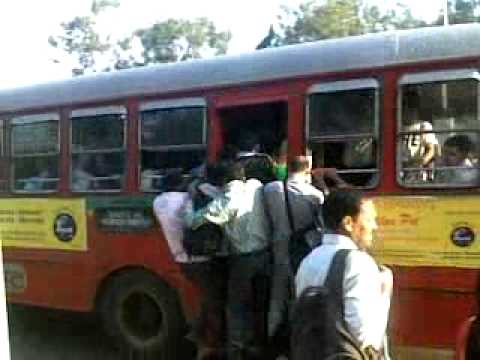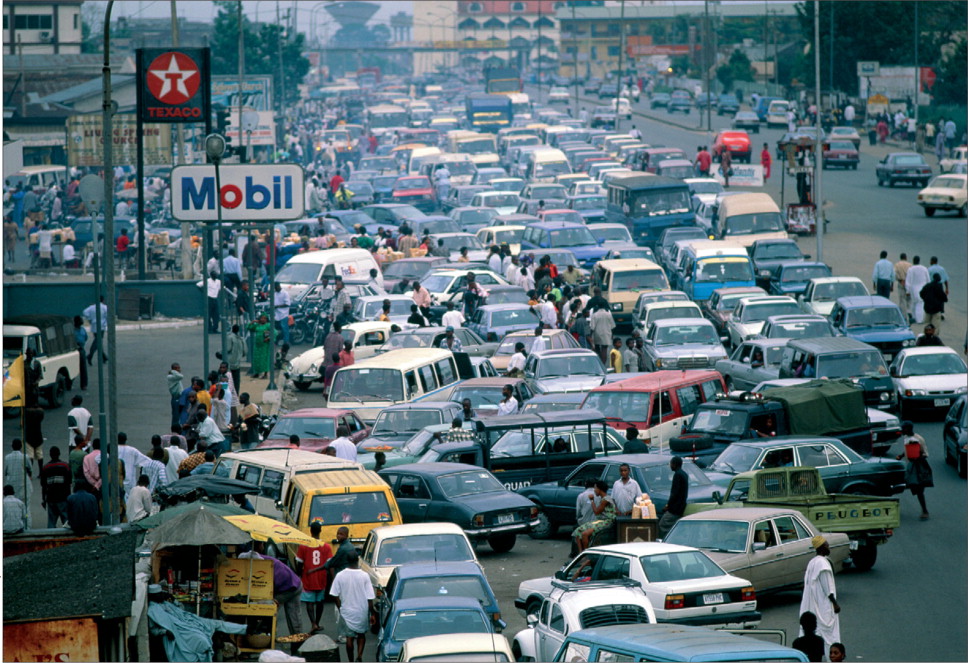
Some times creative writers give insighs into problems better than experts. During the wave of the Theatre of the Absurd Achyut Vaze wrote a play in the 1970s in which the characters wait for a bus which never arrives like Godot in Beckett’s famous play Waiting for Godot.
One is reminded of Vaze’s play Chal Re Bhopalya by the interminable wait one faces for a BEST bus in Mumbai these days. Even on a major road one cannot spot any bus, not even ones you don’t want to take. China came up with a similar play Bus Stop in the eighties which became popular and was promptly banned. But the situation there at least in Beijing has improved as I noticed during a visit last April. Buses are visible, always going and coming. I travelled regulary by buses. Never had to take a taxi.
In Mumbai, the situation has worsened greatly since the time Vaze wrote the play. He was a bright kid, had just done his MBA from IIM , Ahmedabad.
The BEST Undertaking, once the pride of Mumbai and widely respected all over the country, has been systematically weakened over the years by forces inimical to the concept of public transport and the interests of common people.
It is true there are severe internal problems with the running of BEST. But the government’s current war against the BEST is largely unwarranted. The government must realize that its own promotion of private cars and attack on public transport have contributed to the BEST’s running into losses.
Cars illegally parked and cars moving on roads have caused road congestion which has slowed down BEST buses, reduced bus trips, their passengers and caused severe losses to the Undertaking.
Ruling politicians have begun to notice the nuisance caused by parked cars but their reasons are different. Look at this statement. Click a picture of a vehicle parked on the road, send it to the police and get a 10 per cent reward out of a fine of Rs. 500, says the union road transport minister Nitin Gadkari. Looks very tempting, impressive , but his solution is not as sound as it seems. His alternative is to build high rise car parks. The trouble is these are too costly to build, the returns are extremely poor and they don’t seem to be a success anywhere in India. In Mumbai they are seen a huge real estate swindle in which only the municipal authorities and builders are beneficiaries. Many such spaces are simply lying vacant.
In his ministry’s Transport Bhavan, he proposes to build a car park on 314 sq m of space. It will cost Rs. 9 crore, will mean a loss of much open space it will accommodate only 112 cars. Besides, it may work in his Bhavan. This may work partially in Lutyen’s Delhi but definitely not elsewhere.
He says he finds it embarrassing that ambassadors and other dignitaries visitng him have to park their vehicles on the road and several such vehicles jam the road to Parliament. But, surely, there are other solutions. Congestion pricing is one such and it works in London. The trouble is that the diplomatic community, which the minister refers to , simply is refusing to pay the congestion charge saying it is a tax and they should enjoy diplomatic immunity.
By 2015 their dues had climbed to 95 million pounds. Former London Mayor Ken Livingstone had called the American ambassador Robert Tuttle a chiseling little crook. The Americans had asked other embassies too not to pay the charge.
We need to learn from mistakes the Western countries have made. They find that it is simply not possible to provide more and more car parking facilities. The solution is to severely restrict the use of cars. It is an unpopular step but there is no alternative.
London Mayor Sadiq Khan, who is currently on a visit to India and then goes to Pakistan, is a staunch champion of public transport and earned the hostility of the motoring class. A vision paper he has prepared seeks to make the car an endangered species, so to to say, in the coming years. It will be completely overshadowed by public transport in London.
Unfortunately in Mumbai, the policies of the government and some politicians have made the BEST bus system an endangered species.
Citizen groups are not taking this lying down. A group Aamchi Mumbai AAmchi BEST, Our Mumbai our BEST, representing all citizens, has been formed to launch a fight to save BEST. We will organize meetings in different places to create awareness, said Antony Sami, a prominent democratic rights activist.
The current proposals to attack the BEST, privatise is operations arise from a deeply embedded upper class culture opposed to public transport. The Daily Telegraph newspaper of London recently launched a vicious attack against Mayor Sadiq Khan and observed with contempt that public transport is used by lumpen masses.
That government’s pro-car policy deals a serious blow to public transport became most visible in Mumbai last week .Thousands of cars going to an exhibition centre in Goregaon for a convention of the pharmaceutical industry clogged the streets causing traffic jams that extended in different directions upto 10 km. The worst sufferers were public transport vehicles and ordinary commuters. This is how the BEST runs into a loss. The authorities need to understand this.
And privatization is no solution. Look at this recent experience.This is luxury travel for you by a Mercedes bus by a private bus company. The bus was to start from Mahabaleshwar hill station at 4 p.m. It was full and there were many school students from boarding schools returning to Mumbai for a holiday. Some were accompanied by parents, some not.
The driver struggled with starting the bus for over an hour and finally gave up. The company Neeta then arranged for a sleeper bus. But it was far from luxurious. It was a 36 seater while the original bus had 48 passenges. So the 48 were all crammed into this 36 seater upto the ancient town of Wai for about an hour and a half.
Here the passengers were put into another bus which finally reached Mumbai several hours late. So you pay more for this luxury travel, waste so much time, suffer so much inconvenience.
It was clear from the talk among the passengers that these breakdowns are quite frequent.
Apart from the general inefficiency, the basic snag is here. These are high tech buses but once something goes wrong , the driver simply does not know how to handle it. He may be very good with a modest bus but not this one when it comes to the technology.
Several questions arise. What is the RTO doing about such poor maintenance, service. If such a luxury bus suddenly comes to a halt on the highway , accidents are bound to occur and they do occur.
There is almost no regulation of private bus transport , much of which remains inefficient as well as expensive.
There is also a lesson here for BEST which wants to privatise some of its services. There is certainly a case for improving the present operations in the present format. But all indications are that the privatization will be totally against the public interest.
There is also the issue of technology. One needs to listen to reputed experts like Dinesh Mohan, for long with IIT Delhi, who is an adviser to several governments on transport. He says we should use appropriate technology, simply because some new technology is available, we need not rush to embrace it.
The proposed high speed Mumbai-Ahmedabad rail project falls in this category. It is unfair to condemn as Luddites those opposing fancy projects. Research shows that popular concepts about Luddites are wrong. Luddites in England were not opposed to machinery as such. They were protesting against an oppressive system and attacks on their livelihoods.
Vidyadhar Date is a senior journalist and author of the book Traffic in the era of climate change















































